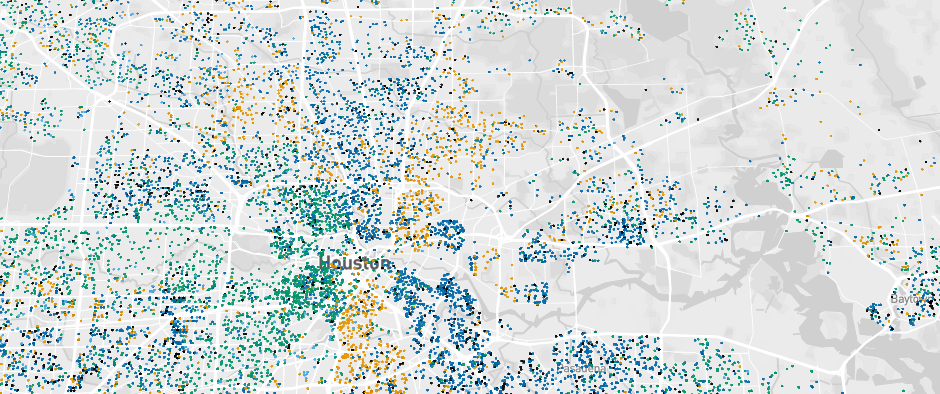
DASH - Data Analytics in Student Hands
Overview
DASH is a new approach to how individuals interact with science. Data analytic tools geared toward individuals allow students and community members to see how the science matters to them.
The new age in computing is not just big data — it's how we approach the world using all the information now available at our fingertips. DASH puts the tools in student hands and provides the projects that organize learning around small groups doing meaningful work in the community.
Both the CHW Initiative and DASH work together to nourish a new attitude towards data - both big numerical data and the ways in which we know things about others. The Community Health Workers have face-to-face interactions with other community members, and coordinating with DASH allows us to prioritize the intuitive and individual levels in our research.
The Honors College career begins with close readings of ancient texts in the first semester of the Human Situation, as students learn to understand arguments about humanity and the world. DASH aspires to close the loop: Understanding the human implications of technology begins with a close engagement with the new tools that let data analytics resonate with those earlier lessons about meaning and a sense of purpose.
History
DASH began because of several interdisciplinary research projects that had enhanced undergraduate participation. The first project joined researchers in art history and archaeology with computer scientists working on image recognition, and we are now expanding to 3-d scanning and new museum partners. The second project gave Houston the first neighborhood-scale, real-time map of ozone pollution, and we are working to expand into pollen and mold maps, other air pollutants, and new cities. That project let us begin work with the City of Houston and other health partners on using data analytics to model social and environmental determinants of health.
In the summer of 2014, we officially introduced the DASH program with the Summer of Apps, which gave 19 students full-time research positions to work in small teams to make different mobile projects for community partners. In the fall of 2015, we will teach our first classes under DASH, and we plan to expand our offerings every semester. In the summer of 2018, we inaugurated our first Pharis fellows, and worked on hypergraphs and health.
Projects
Related Links and Contact Information
-
Related Links
-
Contact